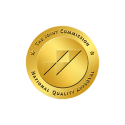Gastric Sleeve in Turkey – Safe & Affordable in 2025
Looking for an affordable gastric sleeve surgery abroad?
Join thousands of international patients who choose Turkey for high-quality, all-inclusive weight loss surgery. Our 2025 packages start from just $3,500 and include hospital stay, surgeon fees, accommodation, transfers, and full aftercare support.

Gastric Sleeve Surgery in Turkey: A Comprehensive Overview
Gastric sleeve surgery, also known as sleeve gastrectomy, involves removing a large portion of the stomach to reduce its capacity. This helps patients feel full sooner and supports sustainable weight loss. The procedure is performed laparoscopically and is one of the most popular bariatric surgeries in Turkey thanks to its medical expertise and competitive pricing.
| Detail | Information |
|---|---|
| Eligibility | +35 BMI |
| Processing time | 1 hour |
| Surgical procedure | Yes |
| Stitch | Dissolvable |
| Anesthesia type | General |
| Incision | 5 |
| Hospital Accreditation | ISO, JCI |
| Recovery time | 6 days |
| Accommodation | 6 days |
| Cost | 3500 - 5500 USD |
| Package | All Inclusive |
Who is Eligible for Gastric Sleeve?
| BMI Range | Classification | Eligibility for Gastric Sleeve |
|---|---|---|
| 30.0 - 34.9 | Obese Class I | Not eligible |
| 35.0 - 39.9 | Obese Class II | Eligible (with comorbidities) |
| 40 and above | Obese Class III | Eligible |
Different Types of Gastric Sleeve Surgery
1. Standard Sleeve Gastrectomy
Removes ~80% of the stomach, leaving a tube-like pouch. It’s purely restrictive—no intestinal bypass. Most common choice for moderate to severe obesity.
2. Re-Sleeve Gastrectomy
Performed if the initial sleeve stretches or weight is regained. The surgeon trims the stomach again to restore restriction. Useful in long-term weight maintenance.
3. Band-over-Sleeve
Combines a gastric band with a sleeve. The band adds adjustable restriction on top of the sleeve, often used in revision cases or for slow weight loss.
4. Sleeve with Duodenal Switch (SADI-S)
Starts with a sleeve, then adds intestinal bypass. This version promotes both restriction and malabsorption, ideal for patients with BMI >50 or metabolic disease.
5. Endoscopic Sleeve Gastroplasty (ESG)
A non-surgical, incisionless option. Sutures are placed via endoscopy to mimic a sleeve shape. Lower risk and shorter recovery, but less weight loss.
Each type serves different patient profiles. Choosing the right one depends on BMI, comorbidities, and previous surgeries.
What are the Advantages of Gastric Sleeve Surgery?
| # | Advantage | Description |
|---|---|---|
| 1 | Significant Weight Loss | Helps patients lose 60–70% of excess weight within the first year. |
| 2 | Improved Health Conditions | Improves or resolves obesity-related conditions like type 2 diabetes, hypertension, and sleep apnea. |
| 3 | No Foreign Objects | Unlike gastric bands, no implants or foreign bodies are used. |
| 4 | Reduced Hunger | Removes the part of the stomach that produces ghrelin, the hunger hormone. |
| 5 | Short Hospital Stay | Minimally invasive laparoscopic surgery typically requires only 1–2 days of hospitalization. |
| 6 | Improved Quality of Life | Boosts mobility, energy, and mental well-being due to better physical health. |
Gastric Sleeve Steps
1- General Anesthesia: You’ll be asleep and pain-free throughout the procedure.
2- Positioning: You’ll lie on your back tilted slightly head-down to improve access to the abdomen.
3- Port Placement: Small incisions are made in your abdomen, and laparoscopic instruments are inserted through these “ports.”
4- Inspection: The surgeon examines your abdominal cavity and stomach using a camera.
Recovery After Gastric Sleeve Surgery
Recovery after gastric sleeve surgery is a journey with distinct phases, each requiring specific care and adjustments. Here’s a breakdown:
- Immediate Recovery (Hospital Stay):
1-3 days: You’ll spend this time under observation in the hospital.
Pain management: Medication will be provided to manage any discomfort from the incisions.
- Early Recovery (First 2 Weeks):
Discharge: You’ll likely be discharged with specific instructions and dietary guidelines.
Pain and Discomfort: Discomfort might persist, but it should progressively decrease. Pain medication will still be required, but stronger options may be phased out.
Diet Progression: You’ll gradually move from pureed foods to soft and then solid foods, focusing on lean protein, fruits, and vegetables. Small, frequent meals are key.
- Intermediate Recovery (Weeks 3-6):
Energy Levels: Fatigue is common, but your energy levels should gradually improve.
Diet Expansion: You’ll likely be able to introduce most normal foods, but portion control and healthy choices remain crucial.
- Long-Term Recovery (Beyond 6 Weeks):
Weight Loss: You should experience significant weight loss in the first year, but the rate and total amount will vary.
Lifestyle Changes: Maintaining healthy diet and exercise habits is crucial for long-term success and preventing weight regain.
Reasons for the Popularity of Gastric Sleeve Turkey
- Affordability: Lower costs compared to many Western countries, making it an attractive option for international patients.
- Experienced Surgeons: Highly skilled and experienced surgeons with international training and certifications.
- State-of-the-Art Facilities: Modern hospitals equipped with the latest medical technologies and high standards of care.
- Comprehensive Care: All-inclusive packages often covering surgery, hospital stay, follow-up care, and sometimes travel arrangements.
- Medical Tourism Support: Well-developed infrastructure for medical tourism, including assistance with accommodation, transportation, and translation services.
- High Success Rates: Proven track record of successful outcomes and patient satisfaction.
- Short Waiting Times: Faster access to surgery compared to long waiting lists in some countries.
📅 Plan Your Trip to Turkey for a Gastric Sleeve
| Timeline | Activity | Recommendations |
|---|---|---|
| 6-12 Months Before | Initial Consultation | Consult with your local doctor and a Turkish clinic remotely to discuss eligibility and potential dates. |
| 3-6 Months Before | Medical Preparation | Begin necessary dietary and medical preparations as advised by the surgical team. |
| 1 Month Before | Travel Arrangements | Book flights and accommodation. Arrange for medical visas if necessary. |
| 2 Weeks Before | Final Checks | Finalize all personal and medical preparations. Confirm travel itinerary and local transport in Turkey. |
| Arrival in Turkey | Pre-Op Consultation | Meet with your surgical team in Turkey for a final pre-operative consultation. Undergo any last-minute tests. |
| Day of Surgery | Surgery | Proceed with the gastric sleeve surgery as scheduled. |
| 1-2 Weeks Post-Surgery | Recovery in Turkey | Stay in Turkey for initial recovery and follow-up appointments. Follow all post-operative care guidelines. |
| Return Home | Post-Surgery Follow-up | Continue recovery at home with regular follow-ups remotely or with local healthcare providers. |
Tips for Ensuring a Successful Gastric Sleeve Turkey
For a smooth and successful gastric sleeve journey in Turkey, start by researching well-reviewed clinics with certified bariatric surgeons. Make sure the hospital meets international standards and provides comprehensive pre- and post-operative care. Follow your surgeon’s instructions strictly before and after the procedure, especially regarding diet and physical activity. Maintain open communication with the medical team, attend all follow-up appointments, and adopt a long-term commitment to a healthy lifestyle for the best results.
Gastric Sleeve Surgery All-Inclusive Package in Turkey
Pre-Operative Examinations: Comprehensive tests to assess patient suitability for surgery.
Surgical Procedure: Laparoscopic sleeve gastrectomy performed by experienced bariatric surgeons.
Medication and Diet Plan: Post-operative medications and personalized dietary guidance.
Accommodation: 7-8 nights stay, including hospital and hotel accommodations.
Post-Operative Support & Counseling: Continuous follow-up care, including nutritional guidance and support for lifestyle changes to ensure long-term success.
VIP Transportation: Airport transfers and local transportation between the hotel and hospital.

Need Help? Contact Us!
7/24 Obesity Help Desk
Gastric Sleeve Surgery
All Inclusive Packages-
Pre-Op Examinations
-
Sleeve Gastrectomy Weight-Loss Surgery
-
Medication and Diet Plan
-
6-7 Night Accommodation
-
Post-Op Support & Counselling
-
VIP Transportation
💸 Gastric Sleeve Surgery Cost in Turkey 2025
Gastric sleeve surgery in Turkey is known for its affordability and quality. In 2025, the cost typically ranges from $3,500 to $5,500, depending on the clinic, surgeon’s expertise, and package inclusions. This is significantly more affordable compared to countries like the USA, where similar procedures can cost between $15,000 and $20,000.
| Package | Price (USD) | Includes |
|---|---|---|
| Standard | $3,500 | Surgery, 3 nights hospital, hotel, transfers |
| Premium | $4,200 | + Dietician, extended aftercare |
| VIP | $5,500 | + 5-star hotel, translator, private nurse |
How Much is a Gastric Sleeve Surgery in Turkey?
In 2025, Turkey remains one of the most preferred destinations for gastric sleeve surgery due to its combination of affordable pricing, internationally accredited hospitals, and experienced bariatric surgeons. The average cost for a sleeve gastrectomy ranges from $3,500 to $5,500, often including pre-operative tests, hospital stay, post-operative care, accommodation, and transfers. Compared to countries like the US or UK, where the same procedure may cost three to five times more, Turkey offers excellent value without compromising medical standards. Popular cities such as Istanbul, Izmir, and Antalya host modern clinics equipped with advanced technologies and English-speaking staff. However, patients are strongly advised to research clinics thoroughly, verify surgeons’ credentials, and avoid unusually low-priced offers that may signal poor quality or hidden costs.
🌍 Gastric Sleeve Surgery Prices by Country
Gastric sleeve surgery prices vary significantly by country, with Turkey often offering some of the most competitive rates. The lower costs in Turkey are primarily due to the country’s favorable exchange rate, lower operating expenses, and government incentives to promote medical tourism. These factors allow Turkish clinics to provide high-quality care at a fraction of the price found in Western countries, making it an attractive option for international patients.
| Region | Average Gastric Sleeve Surgery Cost |
 Turkey Turkey | $3,500 – $5,500 or more |
 US US | $15,000 – $25,000 or more |
 Canada Canada | $11,000 – $15,000 or more |
 UK UK | £8,000 – £12,000 or more |
 Australia Australia | AUD 10,000 – AUD 15,000 or more |
 Germany Germany | €10,000 – €14,000 or more |
 France France | €11,000 – €15,000 or more |
Gastric Sleeve Surgery Costs Around the World
The cost of gastric sleeve surgery varies significantly across countries due to differences in healthcare systems, labor costs, and insurance structures. In the United States, the average price ranges from $15,000 to $25,000, often excluding additional expenses like follow-up care or hospital stays. In the United Kingdom, prices typically range from £9,000 to £12,000 in private hospitals. Countries like Germany and France offer the surgery for €10,000 to €15,000, though partial costs may be covered by insurance. Meanwhile, Turkey stands out with prices between $3,500 and $5,500, offering all-inclusive packages in JCI-accredited hospitals. Similarly, Mexico offers procedures at around $9,000 to $12,000, appealing to North American medical tourists. These differences make countries like Turkey and Mexico attractive options for patients seeking affordable yet high-quality bariatric care.
Gastric Sleeve in Turkey vs US
Gastric sleeve surgery in Turkey is significantly more affordable than in the US. While prices in the US range from $15,000 to $25,000, the same procedure in Turkey typically costs between $3,500 and $5,500 — often including accommodation, transfers, and aftercare. Despite the lower cost, clinics in Turkey maintain high medical standards and internationally accredited surgeons.
Gastric Sleeve in Turkey vs UK
Gastric sleeve surgery in Turkey is significantly more affordable than in the UK. While private surgery in the UK typically costs between £8,000 and £12,000, the same procedure in Turkey ranges from $3,500 to $5,500 — often including accommodation, transfers, and aftercare. Despite the cost difference, Turkish clinics offer high medical standards, English-speaking staff, and internationally accredited surgeons. Moreover, Turkey provides minimal wait times, whereas in the UK, patients using the NHS may face waiting lists of several months to years.
Why does Gastric Sleeve Surgery Cost in Turkey Cheap?
Gastric sleeve surgery is more affordable in Turkey primarily due to lower overall operational costs, including labor, facility expenses, and currency exchange advantages for foreign patients. Turkish hospitals benefit from a highly skilled medical workforce with lower salary scales compared to Western countries, allowing clinics to offer competitive prices without sacrificing quality. Additionally, the Turkish government supports health tourism through regulations and incentives, further reducing costs for both clinics and patients. Many hospitals also bundle services into all-inclusive packages, covering accommodation, transfers, and post-op care, which adds to the cost-efficiency. Despite the lower prices, many Turkish clinics maintain international accreditations and adhere to global medical standards.
🧾 Does Health Insurance Pay for the Gastric Sleeve Surgery in Turkey?
Most health insurance plans do not cover gastric sleeve surgery performed in Turkey. Since the procedure is considered elective and conducted abroad, international insurance providers—especially those based in the US, UK, or EU—typically exclude it from their coverage. Patients traveling to Turkey for weight loss surgery usually pay out-of-pocket, often opting for all-inclusive packages that cover the operation, hospital stay, accommodation, transfers, and aftercare. While Turkish public insurance (SGK) may cover the surgery for eligible local residents under specific medical criteria, this does not apply to foreign patients.
Can I get Finance for Gastric Sleeve Surgery in Turkey?
Yes, you can get finance for gastric sleeve surgery in Turkey, but options are limited. Most clinics, including Dr. HE Clinic, require full payment before the procedure. However, some patients use medical loans, credit cards with installment plans, or financing services from their home countries. It’s best to contact the clinic directly to ask about any available payment flexibility.
Gastric Sleeve Turkey: Before and After
Discover real patient transformations with Gastric Sleeve Turkey before and after photos from Dr. HE Clinic.


Gastric Sleeve Surgery Turkey Reviews
Explore detailed Gastric Sleeve Surgery Turkey reviews from real patients who chose Dr. HE Clinic for their weight loss journey. Learn about their experiences, results, and why Türkiye is a leading destination for affordable and high-quality bariatric surgery.

Posted on
Truspilot
Posted on
Truspilot🏥 Best Clinic for Gastric Sleeve in Turkey
One of the best clinics for gastric sleeve surgery in Turkey is Dr. HE Clinic. This clinic is renowned for its exceptional healthcare services and highly skilled surgeons. Dr. HE Clinic offers state-of-the-art facilities and follows international standards for medical care. Patients benefit from comprehensive pre-operative and post-operative care, ensuring a smooth and successful recovery. The clinic’s dedicated team provides personalized treatment plans, making it a top choice for those seeking gastric sleeve surgery in Turkey.
🥼 Best Doctor for Gastric Sleeve in Turkey
Prof. Dr. Hasan Erdem is widely recognized as one of the best doctors for gastric sleeve in Turkey. With over 20 years of surgical experience, he has helped thousands of patients achieve life-changing weight loss results. As the founder of Dr. HE Clinic, Prof. Dr. Erdem combines advanced laparoscopic techniques with personalized care, earning international trust and top reviews from patients around the world.
🛡️ Is it Safe To Have A Gastric Sleeve Surgery in Turkey?
Surgeon’s Expertise and Experience: It’s important to choose a surgeon who specializes in bariatric procedures. Gastric sleeve surgeons in Turkey should be experienced and skilled in bariatric surgeries. You should research their qualifications, the number of surgeries performed, and success rates.
Accreditation and Standards of Medical Facilities: Hospitals and clinics in Turkey that cater to international patients often have modern facilities and are equipped with the latest technology. Many of these facilities are accredited by international bodies like the Joint Commission International (JCI) or are licensed by the Turkish Ministry of Health. Checking for such accreditations can be a good indicator of the quality and safety standards of the facility.
✈️ How to Reach Turkey?
By Air: Turkey is well-connected with direct flights from major cities around the world. There are international airports in Istanbul, Ankara, Antalya, and Izmir, among others. You can check for flights from your nearest major airport to one of these Turkish cities.
| Departure City | Arrival City | Duration | Estimated Price |
|---|---|---|---|
| 🛫 London (LHR) | 🛬 Istanbul (IST) | ⏰ 3 hours 50 minutes | 💰 $300 |
| 🛫 Manchester (MAN) | 🛬 Istanbul (IST) | ⏰ 4 hours 35 minutes | 💰 $350 |
| 🛫 Paris (CDG) | 🛬 Istanbul (IST) | ⏰ 3 hours 25 minutes | 💰 $280 |
| 🛫 Frankfurt (FRA) | 🛬 Istanbul (IST) | ⏰ 2 hours 55 minutes | 💰 $320 |
| 🛫 Moscow (VKO) | 🛬 Istanbul (IST) | ⏰ 4 hours 25 minutes | 💰 $400 |
📸 Places to Visit in Turkey
Istanbul is a city where East meets West, blending centuries of history with a vibrant modern lifestyle. Start your journey at Hagia Sophia, a stunning architectural marvel that once served as a church and mosque. Right across, the Blue Mosque stands with its six minarets and elegant interior. Topkapi Palace offers a deep dive into the life of Ottoman sultans.
Don’t miss the Grand Bazaar, one of the world’s oldest and largest covered markets, and the nearby Spice Bazaar for colorful Turkish delights. For a unique view of the city, take a Bosphorus cruise and sail between two continents. Finish your day with a walk along Istiklal Street and a visit to Galata Tower for panoramic views.
As the capital of Türkiye, Ankara offers a different vibe from Istanbul—more laid-back, with a strong sense of national identity. The city’s highlight is Anıtkabir, the mausoleum of Mustafa Kemal Atatürk, founder of modern Türkiye. It’s a place of deep national pride and impressive architecture.
Visit the Museum of Anatolian Civilizations, which houses artifacts dating back to prehistoric times, showcasing the region’s rich cultural layers. Walk through Ankara Castle, offering sweeping views of the city and a peek into its ancient roots. The historic neighborhood of Hamamönü is perfect for a coffee break, with restored Ottoman houses, art shops, and local eateries.
Izmir, located on the Aegean coast, is known for its relaxed atmosphere, rich history, and youthful energy. Begin with a walk along the Kordon, a beautiful seaside promenade lined with palm trees and cozy cafés. Don’t miss the Clock Tower in Konak Square, the symbol of the city.
Explore the Agora of Smyrna, a Roman-era marketplace with columns and arches that whisper ancient stories. Dive into local culture at the Kemeraltı Bazaar, full of handcrafted goods and delicious street food. In the evenings, head to Alsancak for vibrant nightlife and sea-view restaurants.
Antalya is the jewel of the Turkish Riviera, known for its turquoise waters, golden beaches, and historical treasures. The old town, Kaleiçi, is full of charm with cobblestone streets, Ottoman-era houses, and boutique hotels. Discover Hadrian’s Gate, a Roman triumphal arch, and the ancient harbor now turned into a lively marina.
Enjoy a relaxing day at Konyaaltı or Lara Beach, perfect for swimming and sunbathing. Take a trip to the breathtaking Düden Waterfalls or hike in Köprülü Canyon. History lovers should visit the ancient cities of Perge, Aspendos, and Side, all within easy reach.
Frequently Asked Questions About Gastric Sleeve Surgery
How Long Does Gastric Sleeve Surgery Take?
Gastric sleeve surgery typically takes about 1 to 1.5 hours to complete. The surgery is performed under general anesthesia, ensuring that patients don’t feel pain or discomfort during the procedure. This time frame is a general estimate and can vary depending on individual circumstances and the specific techniques used by the surgeon.
Is Gastric Sleeve Surgery Painful?
Gastric sleeve surgery, like any major surgery, involves some level of discomfort and pain, especially during the initial recovery period. However, pain management is a key part of postoperative care. Patients are typically given pain relief medications to manage discomfort following the surgery. The intensity of pain can vary from person to person, but it’s generally well-controlled with medication.
Is There a Scar After The Gastric Sleeve Surgery?
Yes, there will be scars after gastric sleeve surgery, but their size and prominence depend on the surgical technique used. Most gastric sleeve surgeries are performed laparoscopically, involving small incisions rather than a large open cut. This approach typically results in several small scars instead of one large scar. These scars are usually a few centimeters long and may fade over time.
What are the Potential Risks Associated With Gastric Sleeve Surgery?
- Bleeding: There may be bleeding during or after surgery.
- Infection: Risk of infection at the surgical site.
- Leakage: Leakage from the stapled stomach.
- Blood Clots: Increased risk of blood clots, especially in the legs.
- Nutritional Deficiencies: Long-term risk of vitamin and mineral deficiencies.
- Stomach Stricture: Narrowing of the stomach, causing blockage.
- Acid Reflux: Increased risk of gastroesophageal reflux disease (GERD).
- Anesthesia Risks: Complications related to anesthesia.
Gastric Sleeve Death Rate in Turkey
The death rate for gastric sleeve surgery in Turkey is very low, typically under 1%, especially when performed by experienced and qualified surgeons. Turkey is known for its modern medical facilities and highly trained healthcare professionals, ensuring patient safety. While complications are rare, it is crucial to choose a reputable clinic, follow pre- and post-operative instructions, and have clear communication with the medical team to minimize risks.
What is the Minimum Weight for Gastric Sleeve Surgery?
- BMI Requirement: A Body Mass Index (BMI) of 40 or higher, or a BMI of 35 or higher with obesity-related health conditions (e.g., diabetes, hypertension).
- Age: Typically for patients aged 18-65, though exceptions can be made.
- Medical Evaluation: Comprehensive evaluation to ensure the patient is a suitable candidate.
Do I Need to Follow a Special Diet After Gastric Sleeve Surgery?
- Immediate Post-Surgery: Start with clear liquids like water and broth to stay hydrated.
- First Few Weeks: Gradually move to full liquids and pureed foods to allow your stomach to heal.
- Soft Foods: Introduce soft, easily digestible foods such as ground meats and cooked vegetables.
- Regular Diet: Transition to a balanced diet with a focus on protein, fruits, vegetables, and whole grains.
Do I Need to Stay in Turkey After Gastric Sleeve Surgery?
- Hospital Stay: 2-3 days post-surgery for monitoring.
- Recovery and Follow-Up: Additional 5-7 days to ensure there are no complications and to attend follow-up appointments.
QUALITY CERTIFICATES



























Posted on
Truspilot